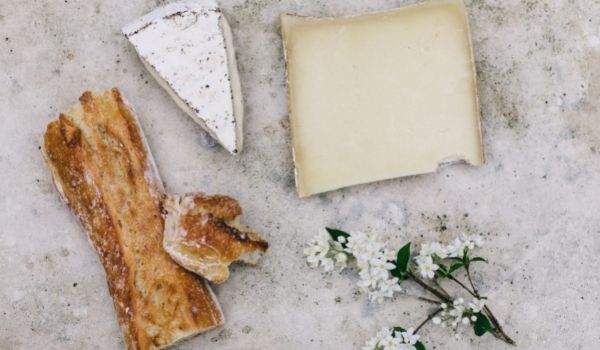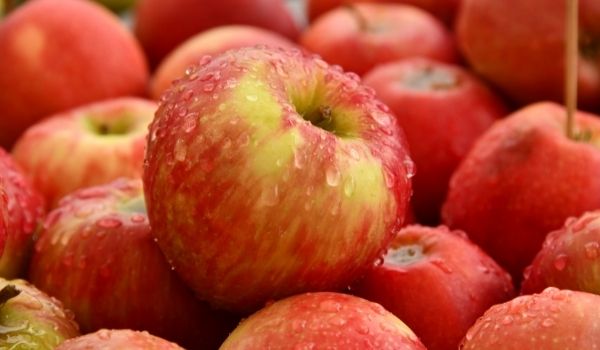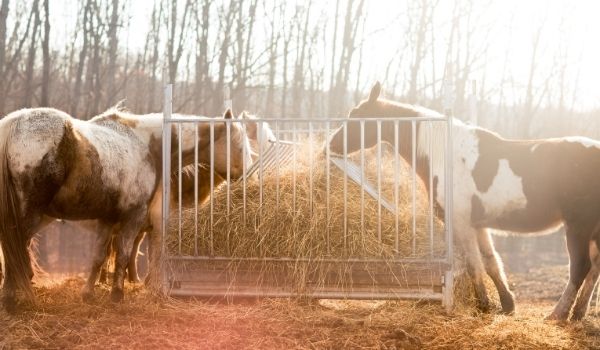Horses are probably the most loved of pets. Studies have explored the unusual bond people share with the equines, something entirely different from those with smaller pets. As studies show that people spend more on horse treats than they do on cat or dog treats, it isn’t surprising that they ask questions like, can horses eat cheese?
Clearly, people take their horses very seriously and are eager to share their favorite meals with them. But the real question is, should they? Since equines have an entirely different digestive system and dietary needs, it is appropriate to put forth this question.
Let us explore it, then.
Can Horses Eat Cheese?

No, horses cannot eat cheese because they lack the system to digest it. That’s right, horses over the age of three are lactose intolerant. It stems from the inability of their small intestines to hydrolyze lactose. As a result, if you do feed them dairy products such as cheese, it may lead to diarrhea and consequent loss of energy and deteriorating health conditions.
Horses have evolved as non-ruminant grazing animals that spend long hours dedicated to foraging. Feeding on grasses relatively lower in nutrient and energy content, they have adjusted their evolutionary behavior by consuming enough to meet their dietary demands. Most horses would do well when fed good quality forage, ample water, and a quality mineral block. While others may need some additional supplements or, in the case of senior horses suffering from dentition, a combination of chaff and some supplements.
But that does not mean an occasional treat would do them any harm. However, owing to their susceptibility to getting poisoned by some of the plants and grains, owners need to learn about the safe foods and those that must be kept out of their way for their own safety. Since horses do not regurgitate, they do not have the safety mechanism of vomiting, and the onus is on their humans to clear anything that may hurt them.
Jump over to the next section to learn about the safe treats you can offer them on a day-to-day basis.
Safe Treats to Feed Your Horse

Remember to keep treats sparse; these are just meant to make things a bit more enjoyable while also providing vital nutrients to your favorite equine. Listed below are some of the fruits and vegetables you can offer guilt-free. However, remember to cut the fruits in the shape of sticks to avoid choking. Keep the size small and the treat occasional.
- Apples
- Carrots
- Bananas
- Celery
- Raisins
- Lettuce
- Apricots
- Sunflower Seeds
- Pineapple
- Grapes
- Berries
- Watermelon
- Peppermints
What Not To Feed Your Horse
- Dairy
- Potato/Tomato Plants
- Mustards
- Garlic & Onion (large quantities can sauce anemia)
- Rhubarb Leaves & Roots
- Horsechestnut
- Peach/Cherry/Avocado Pits
- Russian Knapweed
- Lawn Clippings
- Cabbage
The food items shared below can result in a positive drug test
- Chocolate
- Caffeine
- Nutmeg
- Tea
- Cinnamon Products
- Tobacco
- Morning Glory (Plant)
- Carrot (if fed over 5 lbs. A day)
- Alcoholic beverage
- Cat/Dog Food containing chocolate
Dietary Requirements of a Horse
Energy

Horses, like all other living beings, need energy as a fuel to survive, which is derived from eating the staple horse diet. Below we discuss the food components that supply the equines with the requisite energy.
Carbohydrate: Most of the equine energy is derived from carbohydrates, categorized further into fibrous and non-fibrous carbs. The former is more prominent in the roughage (grass and hay), whereas the latter has a higher content in harvested grains. The content of the two types varies in the different parts of the plant and from plant to plant; for example, corn and wheat have higher non-fibrous carbs (starch & sugar) than oats.
The fibrous carbohydrates are digested in the large intestine, where microbes break them down and absorb the nutrients. Since horses have evolved to graze for longer durations, a healthy amount of grazing on good quality grass and hay can supply most of their energy demands. Poor quality or late-harvested hay has lesser nutrient value and may even lead to digestive issues. Overgrazing may also overwhelm their digestive system, possibly resulting in colic and laminitis.
Non-fibrous carbohydrates offer more readily available, concentrated forms of energy, which is why grains are called concentrates. Since they are not the primary source of energy for the equines, they should only be offered to supplement the forage. The ideal forage supply should amount to 1.5 – 2 % of the horse’s body weight, whereas grains should only amount to 0.5% of the body weight.
Fats: These are rich sources of energy, where digestion releases twice as much energy as compared to proteins or carbohydrates. Small amounts of fats can be healthy for your horse; premixed feeds contain 2 – 6% of the nutrient. Some of these can come from grain byproducts, while others could be added in the form of vegetable oil or some byproducts. When adding fat directly over the feed, instead of a commercially available product, make sure you fulfill the horse’s nutritional demands just as well as its energy requirements.
Proteins: Amino acids, the protein components, serve as building blocks, promoting muscle, hair, and hoof growth. Termed essential amino acids, are critical to the healthy growth of horses. An important amino acid, lysine, is often separately mentioned on horse feeds’ labels, consumption of which can supply the necessary nutrients without increasing the amount of protein.
Legume hay, such as the ones made from alfalfa, peanut, or clover, has higher crude protein (18 – 20%) than grass (10 – 16%). Otherwise, protein may also be consumed via commercially available horse feeds. An adult horse requires 8 – 12%, whereas a growing horse will require 12 – 18 % of crude protein in their diet.
Water
The importance of clean drinking water is often ignored, even though proper hydration is vital to the horse’s wellbeing. Even though demands can vary from region to region, and the amount of work a horse has to do leads to water loss through sweating, a typical horse needs 5 – 15 gallons of water daily to keep hydrated. Ideally, water should be supplied freely at all times. Monitoring the intake can help you optimize the water availability and improve the experience of the horse.
Vitamins
These are important organic compounds necessary to facilitate critical body functions. Categorized into water-soluble (B-complex) and fat-soluble (A, E, D, and K), most of these nutrients are also produced in a horse’s body. Their body has the highest demand for vitamin A, often supplied by forage, whereas vitamin D synthesis can be accomplished by the body with sufficient exposure to the sun. However, heavily worked horses may need additional supplies. Since an excess of fat-soluble vitamins can lead to toxicity, and the label quotes may often be erroneous, consult the vet and use the prescribed portions only to supplement the diet.
Minerals
These are inorganic compounds often needed in small quantities to facilitate various processes and become part of the body tissues. Calcium and potassium are two of the most important minerals, especially critical for growing horses. Experts suggest a higher calcium supply (1.5 – 2.5 times) than potassium to maintain a healthy body.
Sodium chloride or table salt is another important mineral often given in the form of a solid lick or added to the grain mix. Trace supplies of copper and zinc are also essential for the healthy growth of the horse. Care should be taken, especially for the trace minerals, to not overdo the feed since excess supply would only be removed from their body. Rely on a single source supplement to minimize the chances of overdose.
Final Word
Answering the main question, can horses eat cheese? Unfortunately, they cannot. Mature horses develop lactose intolerance as they transition to adulthood, yet there are several fruits and vegetables and some other options that you can safely feed your horse. Horse treats should be offered sparsely in small portions, and most of their dietary requirements should come from forage, water, and minerals.
Generic nutrient values are given; however, the numbers may vary for growing horses, gestating or lactating mares, or horses engaged in heavy work. Having a word with your veterinarian can help you sort out the equine nutrient demands and possible snacks. Since these animals may experience toxicity from quite a few plants, keep an eye on weeding to ensure their safety.

